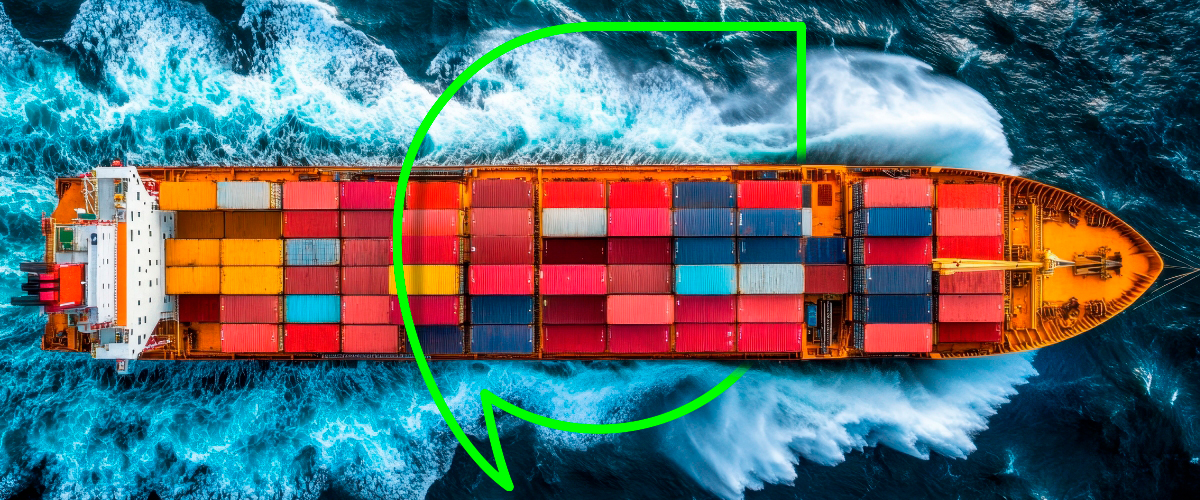On April 17, 2025, the U.S. Trade Representative (USTR) announced new measures designed to challenge China’s dominance in the maritime, logistics, and shipbuilding industries. This move stems from a year-long Section 301 investigation prompted by five major national labor unions. The investigation concluded that China’s practices are detrimental and unreasonable to U.S. commercial interests. This is a significant development that could impact the global shipping industry and your supply chain. At EccoFreight, we want to ensure our partners are prepared for these changes.
USTR’s Two-Phase Plan
In response, USTR outlined a two-phase plan to address the situation:
Phase 1 begins October 14, 2025, and will impose new fees on Chinese ship operators and owners, calculated based on vessel size and usage. Additional fees will also target Chinese-built ships and foreign-built car carriers, with the goal of incentivizing increased shipbuilding activity within the United States.
Phase 2 is set to commence in three years and will introduce restrictions on foreign-built liquefied natural gas (LNG) vessels. These restrictions will be phased in over a 22-year period, with the intention of encouraging the construction and deployment of U.S.-built LNG ships.
Key Dates and Service Fees
Service Fee on Chinese Vessel Operators and Vessel Owners of China
- Effective as of October 14, 2025, a fee in the amount of $50 per net ton for the arriving vessel.
- Effective as of April 17, 2026, a fee in the amount of $80 per net ton for the arriving vessel.
- Effective as of April 17, 2027, a fee in the amount of $110 per net ton for the arriving vessel.
- Effective as of April 17, 2028, a fee in the amount of $140 per net ton for the arriving vessel.
The fee will be charged up to five times per year, per vessel.
Service Fee on Vessel Operators of Chinese-Built Vessels
A vessel operator that is not a vessel operator of China must pay the higher of these two fee calculation methods:
Method 1:
- Effective as of October 14, 2025, a fee in the amount of $18 per net ton for the arriving vessel.
- Effective as of April 17, 2026, a fee in the amount of $23 per net ton for the arriving vessel.
- Effective as of April 17, 2027, a fee in the amount of $28 per net ton for the arriving vessel.
- Effective as of April 17, 2028, a fee in the amount of $33 per net ton for the arriving vessel.
Method 2:
- Effective as of: October 14, 2025, a fee in the amount of $120 for each container discharged.
- Effective as of: April 17, 2026, a fee in the amount of $153 for each container discharged.
- Effective as of: April 17, 2027, a fee in the amount of $195 for each container discharged.
- Effective as of: April 17, 2028, a fee in the amount of $250 for each container discharged.
The fee will be charged up to five times per year, per vessel.
Service Fee on Vessel Operators of Foreign-Built Vehicle Carriers
- Effective as of October 14, 2025, a fee in the amount of $150 per Car Equivalent Unit (CEU) capacity of the entering non-U.S. built vessel.
How This Impacts Your Business
These new fees will likely lead to increased shipping costs for goods transported on affected vessels. For a logistics company like EccoFreight, staying on top of these regulations is crucial. Our goal is to work with our customers to navigate these changes and minimize any disruptions to their supply chain.
We are actively monitoring the situation and will provide further updates as more information becomes available. If you have any questions about how these fees could affect your shipments, please don’t hesitate to contact your EccoFreight representative. We are here to help you adapt and succeed in this evolving maritime landscape.
